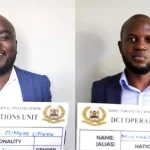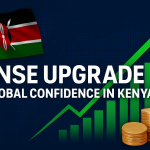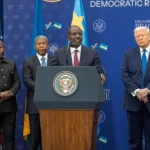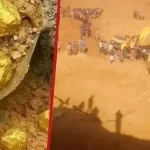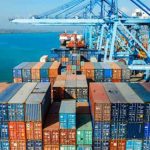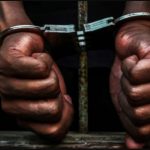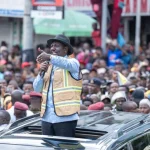🕊️ A Nation in Mourning
Kenya is today in deep sorrow following the death of Raila Amolo Odinga, a man who defined and reshaped the country’s politics for nearly five decades. The former Prime Minister, reformist, and five-time presidential candidate passed away on October 15, 2025, while receiving treatment in Kochi, Kerala, India.
According to medical reports, Odinga succumbed to a cardiac arrest at around 9:52 a.m. Indian Time. He had been undergoing specialized medical therapy at a private Ayurvedic hospital when his condition worsened. Attempts to resuscitate him were unsuccessful.
News of his death broke shortly after 11 a.m. Kenyan time, sending shockwaves across the country. Crowds gathered in Kibera, Kisumu, and Nairobi’s Central Business District, waving flags, chanting freedom songs, and mourning their hero.
🧭 The Long Road of Struggle and Reform
Born on January 7, 1945, in Maseno, Kisumu County, Raila Odinga was the son of Jaramogi Oginga Odinga, Kenya’s first Vice President and an independence-era freedom fighter. His father’s influence planted the seed of political activism early in his life.
Educated in Germany and returning to Kenya as an engineer, Odinga soon found himself at the center of Kenya’s turbulent political transformation. In the 1980s, he was imprisoned for nearly nine years under the Daniel arap Moi regime for allegedly plotting against the government.
Despite torture and isolation, Raila’s resilience became legendary. He emerged as a symbol of resistance — a man who would not bow to intimidation or corruption. His call for “multi-party democracy” in the 1990s changed the course of Kenya’s history forever.
🏛️ Leadership and Legacy
Raila’s political career was one of both triumph and heartbreak. He ran for president five times — in 1997, 2007, 2013, 2017, and 2022 — and despite never clinching the presidency, his influence on Kenya’s political fabric was undeniable.
-
In 2002, he rallied behind Mwai Kibaki under the “Kibaki Tosha” slogan, helping end decades of KANU rule.
-
In 2007, his disputed election loss triggered post-election violence, leading to the formation of the Grand Coalition Government, where Raila served as Prime Minister from 2008 to 2013.
-
In 2010, he championed the new Constitution, which remains one of the most progressive in Africa.
-
In 2018, after years of rivalry with President Uhuru Kenyatta, Raila’s historic “Handshake” symbolized unity and reconciliation.
Even his critics acknowledged his enduring charisma, political courage, and commitment to democratic ideals.
🌍 Regional and Global Recognition
Condolences have poured in from across the world.
Kenya’s President William Ruto described Raila as “a patriot whose courage inspired generations.” Former Presidents Uhuru Kenyatta and Mwai Kibaki’s family issued a joint statement calling him “the conscience of Kenya’s democracy.”
The African Union, where Raila once served as AU High Representative for Infrastructure, mourned him as a “Pan-African visionary who built bridges across nations.”
Leaders from Nigeria, South Africa, Tanzania, Uganda, and Ethiopia paid tribute, noting that Raila’s death leaves a vacuum in African political discourse — one filled with his unmatched fight for justice, governance, and integrity.
🕯️ Scenes Across the Nation
As news spread, emotional scenes unfolded across the country.
In Kisumu, thousands poured into the streets waving ODM flags, singing liberation songs, and lighting candles at Jomo Kenyatta Grounds.
In Nairobi, Parliament was adjourned for a special session of condolence. Lawmakers stood in silence, with Speaker Moses Wetang’ula describing Raila as “the eternal opposition leader who always held Kenya accountable.”
Churches, mosques, and community centers have announced interfaith prayer vigils, while the government confirmed that a state funeral will be held at Uhuru Gardens, Nairobi, followed by burial in Bondo, Siaya County.
🧩 What His Death Means for Kenya’s Political Future
Raila Odinga’s passing has left a significant void in Kenya’s opposition and democratic movements.
His political party, the Orange Democratic Movement (ODM), and the wider Azimio la Umoja coalition face an uncertain future.
Analysts predict a fierce battle for leadership succession within ODM, as younger politicians like Hassan Joho, Opiyo Wandayi, and Wycliffe Oparanya emerge as possible heirs to Raila’s political mantle.
Beyond politics, Raila’s death forces Kenya to confront a generational shift — from liberation-era leaders to a new class of digital-age politicians navigating a different world.
💬 Public Reactions
Across social media platforms, the hashtag #RIPRailaOdinga trended globally within hours.
Ordinary Kenyans flooded X (formerly Twitter), Facebook, and TikTok with tributes:
“He fought for us all, even when we disagreed.”
“A true patriot has fallen. Rest easy, Baba.”
“Kenya’s democracy exists because of his sacrifices.”
🕊️ Final Reflections
Raila Odinga’s story is not just about politics — it is the story of Kenya itself: a nation’s struggle to define its identity, to heal from divisions, and to believe in democracy.
He was a father, husband, mentor, and a symbol of resilience.
Even in death, his message endures: freedom, justice, and unity are worth every sacrifice.


